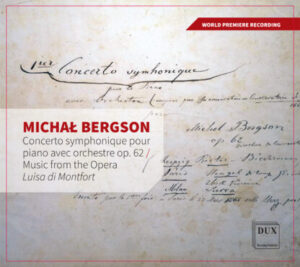BEETHOVEN OUR CONTEMPORARY. SECOND, THOUGH… FIRST
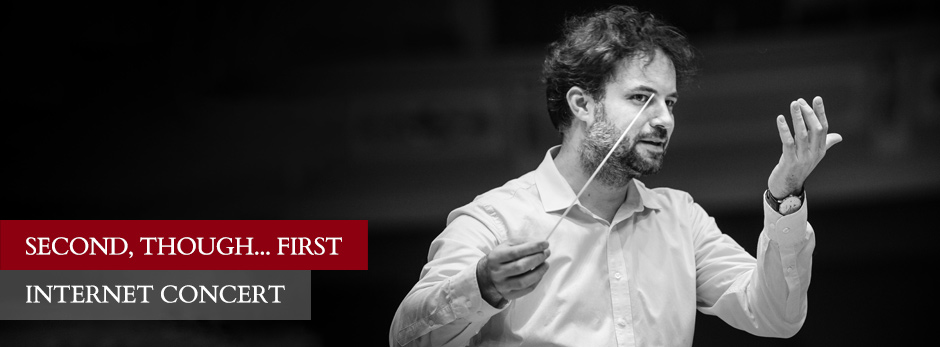
Piano Concerto No. 2 in B-flat major by Ludwig van Beethoven will be heard during the next Internet Concert on Friday, the 5th of February at 7 p.m. The solo part will be performed by the German pianist Martin Stadtfelt, well-known to the Poznan audience, while the Poznan Philharmonic Orchestra will be led by Łukasz Borowicz.
The preserved first drafts and the subsequent versions of the work indicate that Beethoven’s Piano Concerto No. 2 might have been written before his Piano Concerto No. 1. Its premiere performance also occurred earlier – it was held in Vienna on the 29th of March 1795. While the Concerto No. 1 was introduced to the world by Beethoven on the 18th of December 1795, also in Vienna. During both these events the composer himself performed the piano part.
This is what Ryszard Daniel Golianek wrote about the Piano Concerto No. 2 by the Maestro from Bonn in the Poznan Philharmonic concert programme from the 24th of April 2017 (the soloist then was also Martin Stadtfeld):
Piano Concerto No. 2 in B-flat major, Op. 19, is a typical example of absolute music, in which the crucial composition categories stem from the disposal of sound material and creation of relations between the solo piano part and the orchestra. The long period of writing the piece (1788-1795, and after that a series of revisions till year 1801) results from the fact that it was actually the first time the composer dealt with this classical genre brought to perfection by his predecessor, Wolfgang Amadeus Mozart (Beethoven’s Piano Concerto in C major, denoted No. 1, was written in the period of 1795-1801).
In accordance with the principles of a classical concerto, Beethoven arranged the work into three movements which contrast in tempo (Allegro con brio – Adagio – Rondo: allegro molto). The formal structure of particular movements (sonata form, variations, rondo) corresponds with the Mozartean model, just as the type of phrasing, figurations and the chromatics – these elements show the apparent influence of the Maestro from Salzburg. At the same time some individual traits of Beethoven’s style emerge, for instance the main theme of rondo which features a somewhat teasing, syncopated rhythm.
For the evening’s dessert – the 3rd movement of Piano Sonata No. 23 in F minor, Op. 57 by Ludwig van Beethoven, known as Appassionata. It is one of the most important piano sonatas written by the composer and also one of the most famous in the history of music.
PERFORMERS
Martin STADTFELD – piano
Łukasz BOROWICZ – conductor
Poznan Philharmonic Orchestra
PROGRAM
- Ludwig van Beethoven, Piano Concerto No. 2 in B-flat major, Op. 19
Allegro con brio
Adagio
Rondo: Allegro molto - Ludwig van Beethoven, Piano Sonata No. 23 in F minor, Op. 57 Appassionata – third movement Allegro ma non troppo
***
Project co-funded by Polish-German Cooperation Fund
 |
****
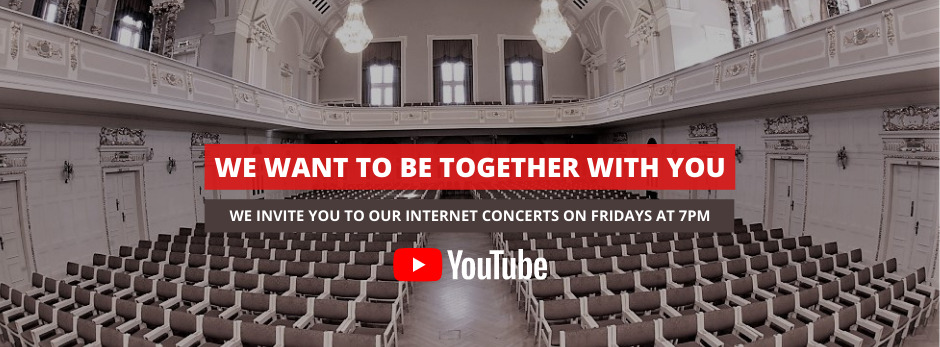
Due to the government’s decision to maintain the epidemiological constraints which aims at limiting the spread of SARS-CoV-2 virus, including the closure of cultural institutions for the audience till at least the 14th of February, we would like to inform that the Poznan Philharmonic concerts will until then be broadcast online.
We invite you to the Internet Concerts every Friday at 7 p.m.
You can find more concert details on our website and Facebook profile.
***
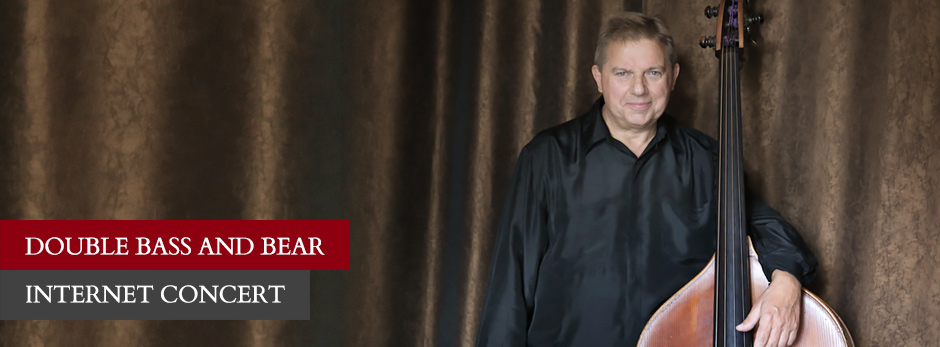
Starring – double bass. This is how one can briefly summarize what music lovers can expect during the next Internet Concert entitled “Double Bass and… Bear”. The concert is held as usual on Friday, on the 29th of January 2021 at 7 p.m.
The double bass originated in the early days of the 16th century, although the first known references didn’t appear until the writings of Michael Preatorius, German composer, kapellmeister and organist living at the turn of the 17th century. He writes about viola da gamba sub-base – a monstrous instrument which is almost 2,5 metres high. Domenico Dragonetti is considered to be the first double bass virtuoso, thanks to whom the instrument has found itself in an orchestra ensemble. Dragonetti’s Concerto for Double Bass and Orchestra is included in the program of the concert starring the largest string instrument. The piece will be performed by Piotr Czerwiński, the soloist of Poznan Philharmonic Orchestra and the Poznan Philharmonic Orchestra led by Marek Pijarowski.
In the second part of the evening you will listen to Symphony No. 82 in C major “The Bear” by Joseph Haydn. This work, as many other pieces written by the composer, received its name thanks to the imagination of the audience. The French associated the parts of bass instruments in the last movement with the bear growls. The work, written in 1786, is the first in the cycle of six Paris Symphonies (No. 82-87) by Joseph Haydn, which were commissioned by the Paris Music Society, Le Concert de la Loge Olympique.
PERFORMERS
Piotr CZERWIŃSKI – double bass
Marek PIJAROWSKI – conductor
Poznan Philharmonic Orchestra
PROGRAM
- Domenico Dragonetti, Concerto in A major for Double Bass and Orchestra
Allegro moderato
Andante
Allegro giusto - Joseph Haydn, Symphony No. 82 in C major “The Bear” Hob. I:82
Vivace assai
Allegretto
Menuet
Finale: Vivace
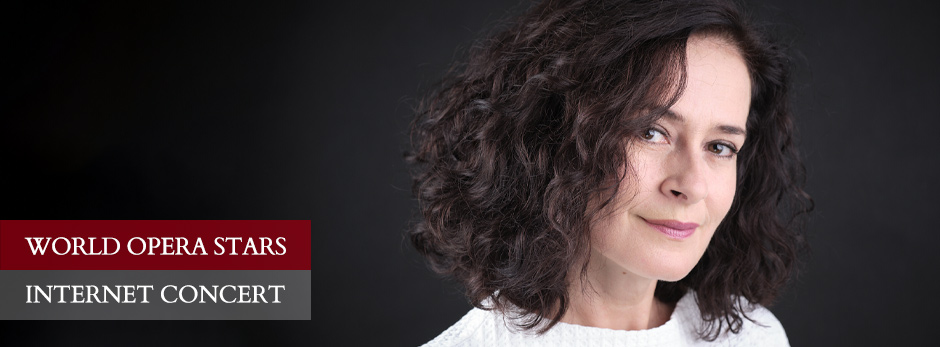
You can say that during the next Internet Concert, on the 22nd of January at 7 p.m., the music of two close friends will be heard: Joseph Haydn and Wolfgang Amadeus Mozart, two of the three famous composers from the First Viennese School. The arias written by Mozart will be interwoven by subsequent movements of Haydn’s Symphony No. 86 in D major.
This Symphony, unusually rarely performed, is fifth in the cycle of six Paris Symphonies (No. 82-87) by Haydn. They were all commissioned by the Paris Music Society, Le Concert de la Loge Olympique, watched over by the great patron of the arts Claude-François-Marie Rigoley, Count d’Ogny. They all met with approval and reinforced the composer’s fame in France and beyond.
Mozart’s arias will be masterfully performed by Simona Šaturova, a Slovak soprano who, albeit her extensive repertoire, underlines her particular fondness for Wolfgang Amadeus Mozart. This is how one of the critics from “Der Neue Merker” in 2012 characterized her performance in the part of Konstanze in Wolfgang Amadeus Mozart’s “The Abduction from the Seraglio” staged in Aalto-Theater in Essen: “Simona Šaturová […] is simply a Mozart wonder. She sings the part of Konstanze with such a moving coloratura, such a delicate piano and in such a perfect style, that the audience holds its breath”.
Will the music lovers on the 22nd of January, at the concert from the World Opera Stars cycle, do the same? Let’s find out.
PERFORMERS:
Simona ŠATUROVÁ – soprano
Łukasz BOROWICZ – conductor
Poznan Philharmonic Orchestra
PROGRAM:
- Joseph Haydn, Symphony No. 86 in D major (1st movement Adagio-Allegro)
- Wolfgang Amadeus Mozart, “Misera, dove son” – Concert Aria KV 369
- Joseph Haydn, Symphony No. 86 in D major (2nd movement Largo)
- Wolfgang Amadeus Mozart, “Crudele, ah no mio bene…/ Non mi dir” – Aria of Donna Anna from the Opera “Don Giovanni” KV 527
- Joseph Haydn, Symphony No. 86 in D major (3rd movement Minuet-Trio)
- Wolfgang Amadeus Mozart, “Chi mai…/ Idol mio” – Elettra’s Aria from the Opera “Idomeneo” KV 366
- Joseph Haydn, Symphony No. 86 in D major (4th movement Finale – Allegro con spirito)
- Wolfgang Amadeus Mozart, “Bella mia fiamma, Addio” – Concerto Aria KV 528
***
Partner:
 |

Due to the government’s decision to maintain the epidemiological constraints which aims at limiting the spread of SARS-CoV-2 virus, including the closure of cultural institutions for the audience till at least the 31st of January, we would like to inform that the Poznan Philharmonic concerts will until then be broadcast online.
We invite you to the Internet Concerts every Friday at 7 p.m.
15.01.2021
BEETHOVEN OUR CONTEMPORARY
IMPERIAL FEAST
Saleem Abboud ASHKAR piano
Ariel ZUCKERMANN conductor
Poznan Philharmonic Orchestra
Program:
- Ludwig van Beethoven, Piano Concerto No. 4 in E-flat major, Op. 73
22.01.2021
WORLD OPERA STARS
THE VOICE OF THE VIENNESE CLASSICS
Simona ŠATUROVÁ soprano
Łukasz BOROWICZ conductor
Poznan Philharmonic Orchestra
The program includes:
Symphony No. 86 in D major by Joseph Haydn and famous arias by Wolfgang Amadeus Mozart
29.01.2021
DOUBLE BASS AND… BEAR
Piotr CZERWIŃSKI double bass
Marek PIJAROWSKI conductor
Poznan Philharmonic Orchestra
Program:
- Domenico Dragonetti, Concerto for Double Bass and Orchestra
- Joseph Haydn, Symphony No. 82 in C major “The Bear”
You can find more concert details on our website and Facebook profile.
***
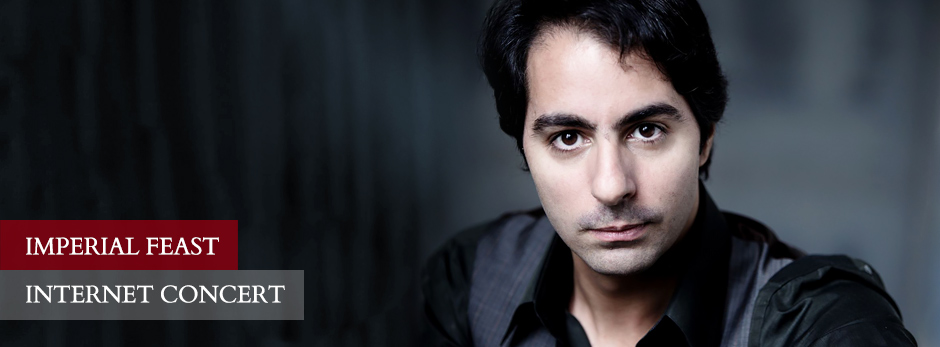
An excellent pianist Saleem Abboud Ashkar and the Poznan Phiharmonic Orchestra led by Ariel Zuckermann are preparing a truly imperial feast for Friday, the 15th of January. During the next Internet Concert, held as usual at 7 p.m., we will listen to the Piano Concerto No. 5 in E-flat Major, Op. 73 by Ludwig van Beethoven.
Piano Concerto No. 5 was Beethoven’s last piano concerto and the only one the composer did not perform in front of the public. It was written in the years of 1809-1811 and the premiere performance took place on the 28th of November 1811 in the Leipzig Gewandhaus, under the baton of Johann Philipp Christian Schulz. The soloist was Friedrich Schneider, as Beethoven, almost completely deaf then, didn’t risk to undertake that role, despite the custom in the case of the previous concertos. The Viennese audience first heard the work a few months later: on the 12th of February 1812, this time the soloist was Beethoven’s apprentice, pianist Carl Czerny, highly regarded by the composer. Unfortunately, the innovative masterpiece had once again exceeded the tastes of the conservative Viennese public – the work received a cool reception.
Piano Concerto No. 5 has earned the “Imperial” title still during Beethoven’s lifetime, though, like many other names of that sort, it wasn’t given by the composer himself. It was probably invented by Johann Baptista Cramer, the English publisher of the work. Some people explain the epithet derives from the concerto’s dedication for archduke Rudolf Habsburg, others say it relates to the heroic and monumental, almost military character of the piece.
The concerto is considered to be the culmination in Beethoven’s piano creation. In this work the composer reaches an ideal balance between the emotional content and the virtuoso elements. A musical feast fit for emperors…
PERFORMERS
Saleem Abboud ASHKAR piano
Ariel ZUCKERMANN conductor
Poznan Philharmonic Orchestra
PROGRAM
- Ludwig van Beethoven, Piano Concerto No. 5 in E-flat Major, Op. 73
Allegro
Adagio un poco mosso
Rondo. Allegro
***
WELCOME TO OUR CHANNEL!
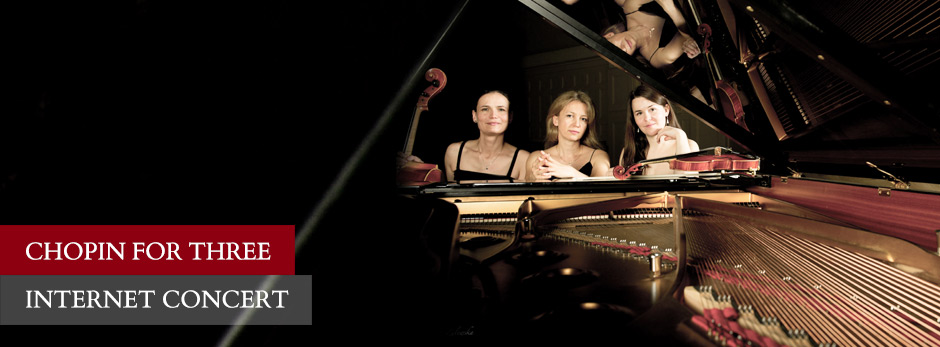
A musical drama in four acts, though with a cheerful ending spiced with a hint of a certain melancholy – that is how one can describe Piano Trio in G minor, Op. 8 by Frédéric Chopin, which will be performed during the next Internet Concert of the Poznan Philharmonic on Friday, 8th of January 2021 at 7 p.m.
Chopin began to write the Trio in 1828 and presumably completed in the spring of 1829. The work had to wait another year for its premiere performance – it was played for the first time in the August of 1830, in the spacious salon of the Chopin family house, in the presence of Wojciech Żywny and Józef Elsner, the pedagogues of young Chopin. And although it was later dedicated to prince Antoni Radziwiłł, it originated as a school score during the composer’s studies with Józef Elsner. The musical piece is the only chamber work written during Chopin’s adolescence. The echoes of Ludwig van Beethoven’s, Franz Schubert’s and Johann Sebastian Bach’s music can be heard in it, as well as the motives from oberek and krakowiak, Polish folk dances.
This is what Mieczysław Tomaszewski, a prominent authority on Frédéric Chopin, wrote about the Piano Trio in G minor: “… here we have a piece by all means remarkable, a perfect example of Polish chamber music. At the same time it is one of the most superb works of its genre in the European music. There is only one problem: the Trio was composed in a somewhat less Chopin style. Or, more rightly said, in a different style than the one we are inclined to consider as Chopin’s.”
The chamber work of Frédéric Chopin will be performed by the Poznan Piano Trio composed of the pianist Laura Kluwak-Sobolewska and the musicians of Poznan Philharmonic Orchestra: Anna Ziółkowska – violin and Monika Baranowska – cello.
PERFORMERS
Poznan Piano Trio:
Laura KLUWAK-SOBOLEWSKA – piano
Anna ZIÓŁKOWSKA – violin
Monika BARANOWSKA – cello
PROGRAM:
- Frédéric Chopin, Piano Trio in G minor, Op. 8
Allegro con fuoco
Scherzo
Adagio sostenuto
Finale: Allegretto
***
WELCOME TO OUR CHANNEL!
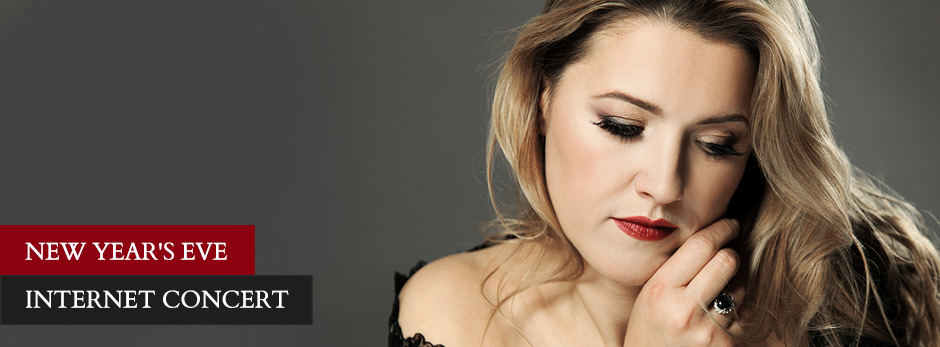
We have been looking forward particularly for that evening for many years. We were always pleased that you had chosen to spend the last evening of the year with the Poznan Philharmonic Orchestra and the invited artists and that at midnight we had all welcomed the New Year by exchanging good wishes.
This year’s plans had to be altered due to the pandemic. Though we cannot meet personally in the AMU Concert Hall, we won’t leave you alone that evening. We will be together thanks to the music. Once again we will listen to famous arias, polkas, waltzes, csardas themes and excerpts of popular operas. It will be absorbing not only as far as music is concerned, as the hosts of the New Year’s Eve Concert are the soprano Katarzyna Hołysz and the conductor Łukasz Borowicz, who will both shine artistically and share many interesting tales and musical anecdotes.
We would you to another Internet Concert of the Poznan Philharmonic: the New Year’s Eve Concert on the 31st of December at 8 p.m.
PERFORMERS:
Katarzyna HOŁYSZ soprano
Łukasz BOROWICZ conductor
Poznan Philharmonic Orchestra
PROGRAM:
- Gioacchino Rossini, Overture to the opera “L’Italiana in Algeri”
- Franz Lehár, “Vilja Song” from the operetta “The Merry Widow”
- Imre Kálmán, Sylvia’s Csardas “Heia, heia in den Bergen” from the operetta “The Csardas Princess”
- Johann Strauss, Pizzicato Polka
- Franz Lehár, Csardas “When the Violin Play” from the operetta “The Gypsy Love”
- Johann Strauss, Emperor Waltz
- Ludomir Różycki, Caton Waltz Caton’s Waltz “An Old Friend of Mine” from Act III of the opera “Casanova”
- Johann Strauss, Banditen-Galopp
- Jean-Paul-Égide Martini, Plaisir d’amour
- Rudolf Sieczyński, Wien, Wien nur du allein
- Johann Strauss, On the Beautiful Blue Danube
- Franz Lehár, Giuditta’s Aria “Meine Lippen” from the operetta “Giuditta”
- Johann Strauss, Radetzky March
***
WELCOME TO OUR CHANNEL!
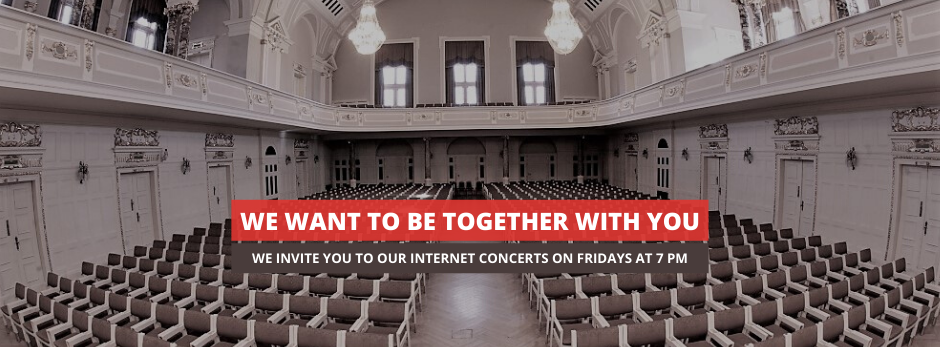
In relation to the epidemiological situation and the government’s decision to close cultural institutions until at least the 17th of January we would like to inform that the concerts of Poznan Philharmonic will be broadcast on the Internet till that time. We invite you to Internet Concert every Friday at 7 p.m.
For more detailed information about concerts please check our website and Facebook profile.
***
WELCOME TO OUR CHANNEL!



